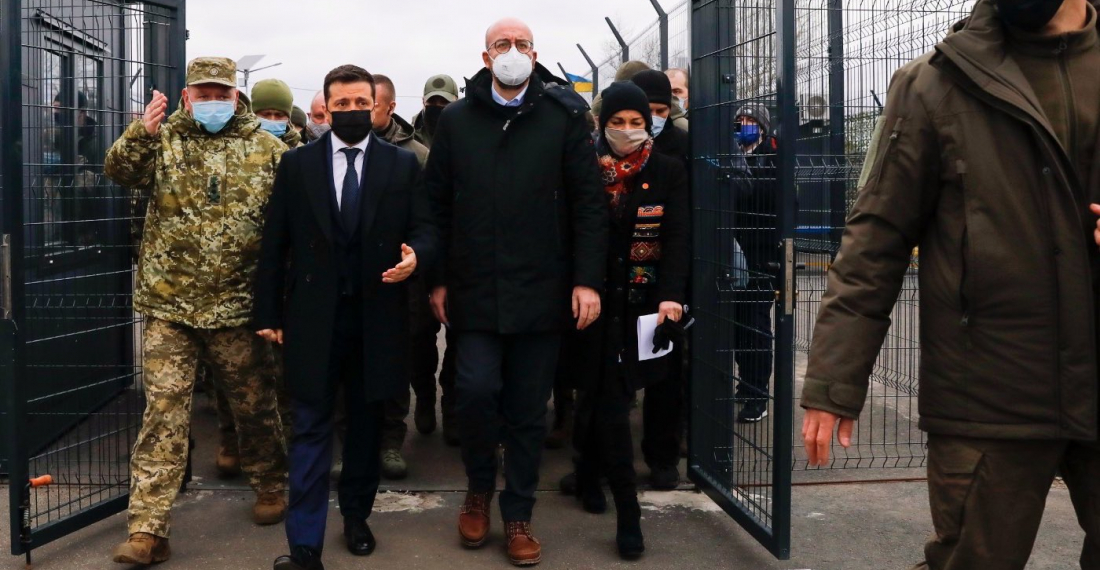The President of the European Council, Charles Michel, is in Ukraine as part of a trip intended to strengthen relations with some of the EU’s Eastern Partnership countries amidst growing tensions between Brussels and Moscow. After visits to Moldova (28 February) and Georgia (1 March), Michel arrived yesterday (2 March) in eastern Ukraine to meet with Ukrainian President Volodymyr Zelensky.
Since 2014, Ukraine and Russia have been in a state of conflict over the Ukrainian regions of Crimea and Donbas. Speaking with President Zelensky at a press conference at the separation line in Donbas, Michel referred to the fact that there is still war on the European continent in 2021 as a “shameful reality”:
“I wanted to come here to highlight yet again how unacceptable the situation is and to meet those who do their jobs under extremely difficult circumstances.”
The European Council President expressed “the EU’s unwavering commitment to Ukraine’s independence, sovereignty and territorial integrity”, and the EU’s support for the “Normandy format and the Trilateral Contact Group to bring peace to the people of Donbas”.
Remarking that Russia had failed to reciprocate Ukraine’s steps to implement the Minsk Protocol to put an end to the conflict in Donbas, he confirmed that the EU’s economic sanctions on Russia would stay in place. He emphasised that “Russia is a party to this conflict, and not a mediator”, expressing his expectation that Russia will allow the OSCE Special Monitoring Mission full access to Ukrainian territories, calling on Moscow to return to the Joint Centre for Control and Coordination.
At a press conference today (3 March) in the Ukrainian capital, Kyiv, President Zelensky stated that he was grateful for the President of the European Council’s “personal interest” in the development of relations between the Ukraine and the European Union:
“The representative of the European Union visiting the contact line is a strong signal of the solidarity of the countries of the European Union and Ukraine.”
Alongside the conflict in Donbas, the leaders discussed the situation in Crimea with Zelensky stating that he had invited Michel to the inaugural summit of the Crimean platform, which will take place in Kyiv on 23 August. He remarked the EU’s recently introduced sanctions regime against human rights abusers “could be a powerful contribution of Brussels to the activities of the Crimean platform”.
The presidents also spoke about the importance of co-operation to deal with the challenge of COVID-19, as well as the further implementation of Ukrainian reforms. Zelensky stated that his country was dedicated to the “efficient implementation of the association agreement”, and also sought to use the agreement to move towards full integration in the EU’s internal market. Michel noted the perseverance of the Ukrainian head of state in reforming the country and reiterated that the EU would continue to help Ukraine on its path of reform including the reform of the judiciary.
Source: commonspace.eu with agencies
Photo: Ukrainian President Volodymyr Zelensky and the President of the European Council, Charles Michel, walk together during a visit to the contact line in the eastern Ukrainian Donbas region; twitter @eucopresident






